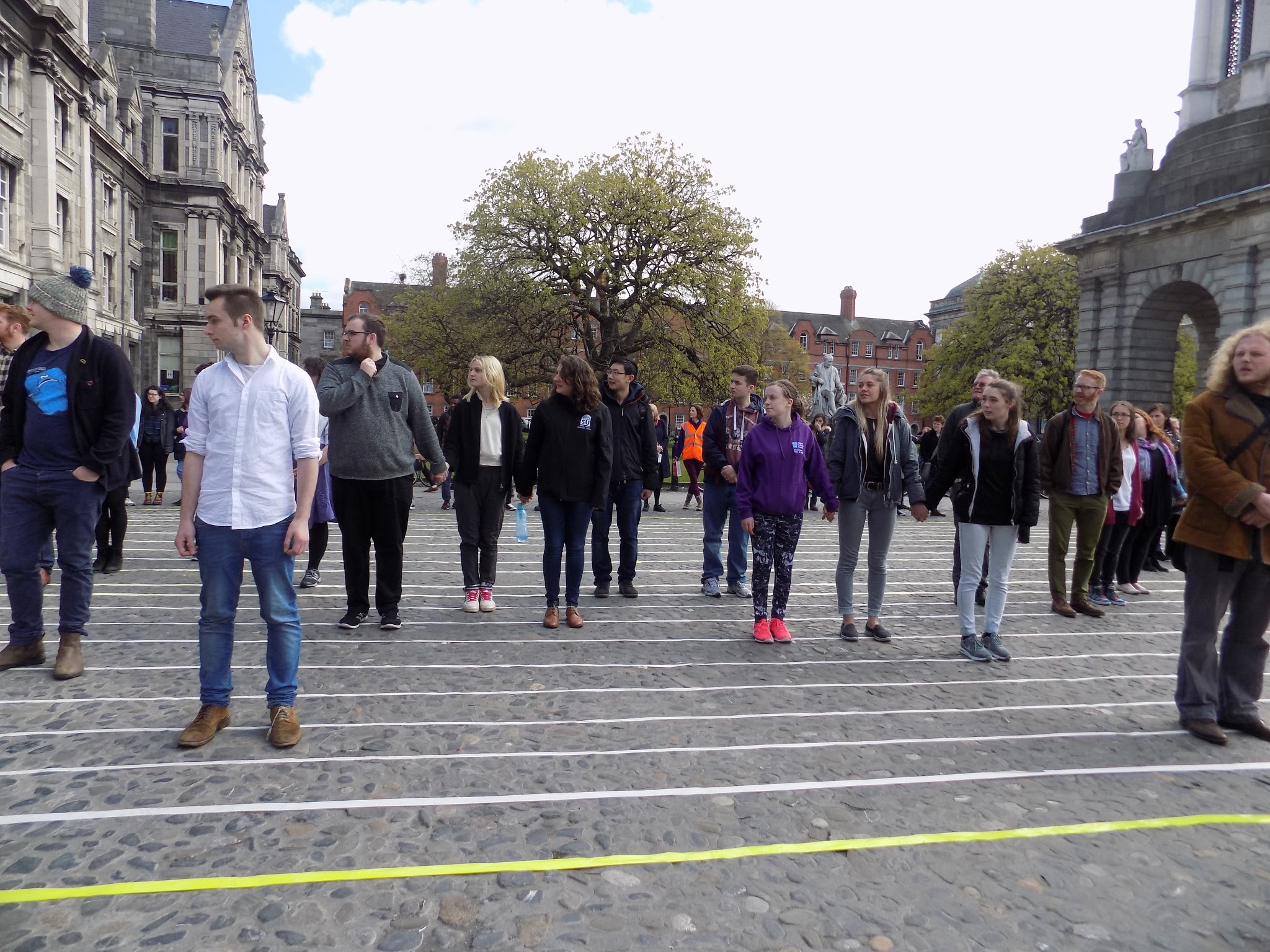Trinity Access Programme took over Front Square on Tuesday to raise awareness for equality and the various privileged positions members of society can hold. A group of participants were asked a series of questions centring around social disadvantage and privilege, in turn being asked to perform certain actions to represent the impact of such across social groups. In a statement, TAP outlined what they hoped the demonstration would achieve: “The aim of this event is to increase awareness of where privilege can place people in society. Every statement addresses some small privilege that is based on gender, race, ethnicity, class, or sexual orientation.”
The event was organised by TAP Advisors Katriona O’Sullivan and Lisa Keane. Guest speakers for the event included SU president Lynn Ruane and Gerry Gannon. Pavee Point and One Family were just two of Ireland’s organisations, currently working to challenge privilege in Irish society, that attended the event. Speaking to O’Sullivan about where they had come up with the idea, she mentioned that part of the inspiration for the event stemmed from a programme run by the American University, Washington DC in which students and staff register to attend a workshop entitled “Unmasking Your Privilege”. Buzzfeed has also filmed a video “What is Privilege?” based on a similar concept.
In the crowded Front Square people formed a line and the event began. To start everyone was placed in the middle row and were asked to move forward or backwards in response to a series of questions. These questions covered a broad range in order to the heart of what we see as privilege, a few examples being: “Were you born in Ireland?”, “Can you can show affection for your romantic partner in public without fear of ridicule or violence?”, “Have you have ever tried to change your speech or mannerisms to gain credibility?”. At the end everyone was asked to move back to the centre to represent that, while we all may have had different privileges based on many factors, working together can help us push past these differences.
On this topic of privilege, O’Sullivan provided her understanding of the term: “[It’s] something that places a person or group ahead.” She stated that there are privileges that we gain from just being born a certain gender or into a certain family and that while we can not help the privileges we are born with, we can use them to help others. This is why O’Sullivan sees programmes, such as TAP, as an important way to challenge privilege. After entering third-level through TAP herself, she is a strong advocate for its continued relevance and importance: “While we are in a society that is unequal it is absolutely necessary for programmes such as TAP to be there to help.”
When asked what they hoped the event would inspire, O’Sullivan expressed a hope that such a demonstration would encourage people to reflect on what privilege means and what they can do to help change its effects; though it can be used as a weapon to suppress progress, it does not have to be so. By working together, she is confident we can change this view of privilege and in doing so, as Ruane stated, we can “level the playing field for everyone”.







